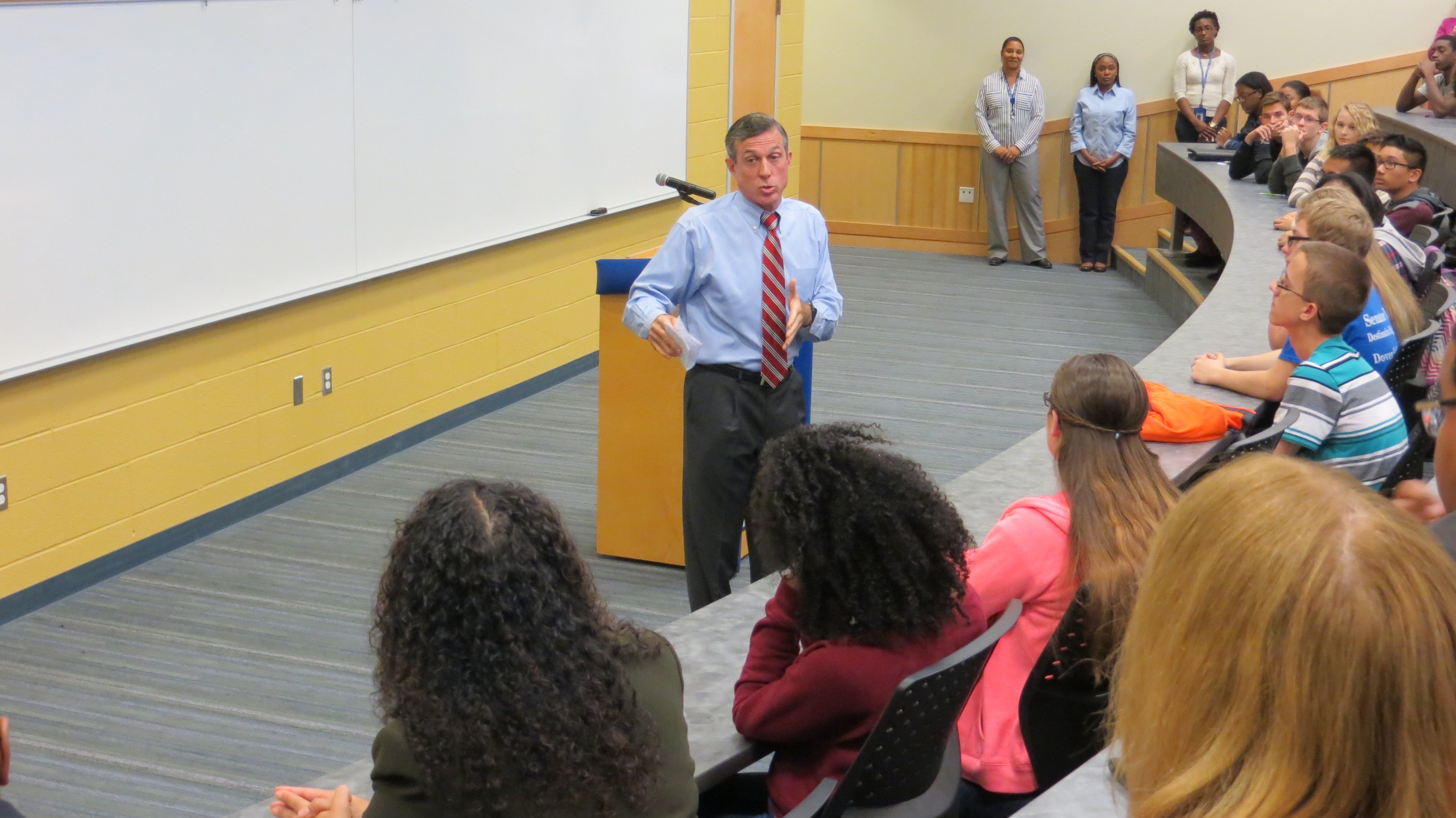Carney to introduce college savings account bill

U.S. Congressman John Carney speaks to ninth- and tenth-graders at Dover High School. (Avi Wolfman-Arent, NewsWorks/WHYY)
As the cost of college rises and students scramble to foot the tab, U.S. Representative John Carney, D-Delaware, wants families to know there’s help available.
That’s the message behind a bill Carney, Delaware’s lone representative in the House, plans to introduce Wednesday.
Dubbed the Higher Educaiton Savings Accounts Act, Carney’s measure would set up accounts where students as early as ninth grade could go to see how much federal financial aid they might receive if they attend college.
“Too much talent is being wasted because low-income students don’t think they have the wherewithal to attend college,” Carney said at a Tuesday event announcing the bill. “For a country like America, that’s unacceptable.”
Carney’s proposal would instruct the U.S. Department of Education to start a pilot program that targets high-achieving, low-income high school students. Those student would have individualized savings accounts where they could see if they’re eligible for federal Pell Grants and how much money they could get on a per-semester basis.
Pell Grants are financial awards the federal government gives to low-income college students. Last year, nearly 9 million undergraduates received over $32 billion through the Pell Grant program, according to Carney’s office. Individual students can earn as much as $5,775 per semester, depending on need.
Students typically do not know how much money they’ll receive in Pell Grants–or if they’ll receive any money at all–until they fill out a complicated federal form during their senior year of high school.
Carney wants to create a system where students can see about how much they would earn starting in ninth grade. He compared it to the notification system that accompanies Social Security, wherein older Americans receive written notifications about future benefits before they are actually conferred.
The bill won’t perscribed exactly how the Department of Education would determine Pell Grant eligibility for students in the pilot program, Carney said. He suggested, however, that the Department might use other data such as eligibility for free and reduced lunch as the basis for estimating how much money students might ultimately receive.
Carney’s staff said the idea for the education savings accounts stemmed from a listening tour the congressman conducted in summer 2013, and that the idea was fleshed out with help from experts at the American Enterprise Institute, a Washington, D.C. think tank.
Carney announced the new bill in front of an assembly of ninth- and tenth-graders at Dover High School in Dover, Delaware. He has served in the House of Representatives since 2011 and is running for Governor of Delaware in the 2016 election.
WHYY is your source for fact-based, in-depth journalism and information. As a nonprofit organization, we rely on financial support from readers like you. Please give today.


